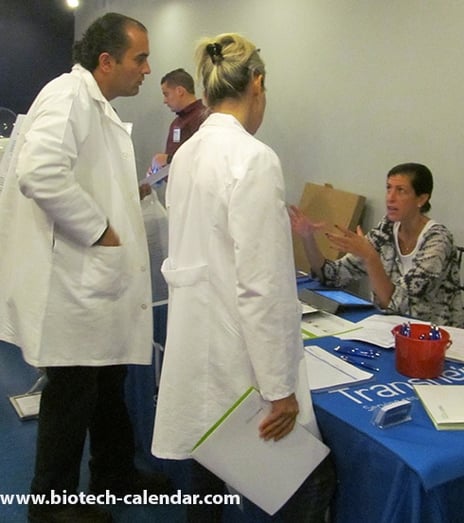In general, increasing laboratory product sales is a numbers game - higher numbers of potential customers mean more opportunity. The key here, though, is finding high numbers of relevant contacts. This means it is critical to do some research on where and with whom you should be spending your time.
For the laboratory product sales marketplace, you should find places where you can meet large numbers of relevant leads - trade shows, conferences, and university events. Once you are face to face with a prospective lead, consider implementing the following tips:
- Be the solution to the problems the researchers are trying to solve. The most successful lab sales reps know how to make their pitches relevant to the listeners' current concerns. For example, how does your product help the researchers reach their current goals? How will your product help them solve their current problems?
- Be direct and succinct, and use supporting data. Researchers are tuned in to facts, and if you have solid data that supports your argument, bring it forward. Scientific sales reps see more success by providing relevant and detailed information in a direct and succinct fashion. Most hiring managers and decision makers don’t have a lot of time to sit around talking. Get to the point, but make sure you answer all their questions.
- Be friendly and approachable. While many researchers are outgoing, others are much more quiet and introspective. Learning the researcher's name and pausing frequently to allow him or her to ask questions or comment can help you establish rapport.
- Schedule follow-up meetings at the show so you don't miss an opportunity!

If you have a booth display, make sure your message is simple and speaks to the solution you offer.
For lab product sales on university campuses, Biotechnology Calendar, Inc. offers forty to sixty events targeting top-funded researchers each year. Event specialists at the company help lab product suppliers select the markets most appropriate for their products. At each event offered by Biotechnology Calendar, the attendees are prescreened, and an average of twenty-six percent are Ph.D level researchers, while over eighty percent have an influence on their laboratory's purchasing decisions.








